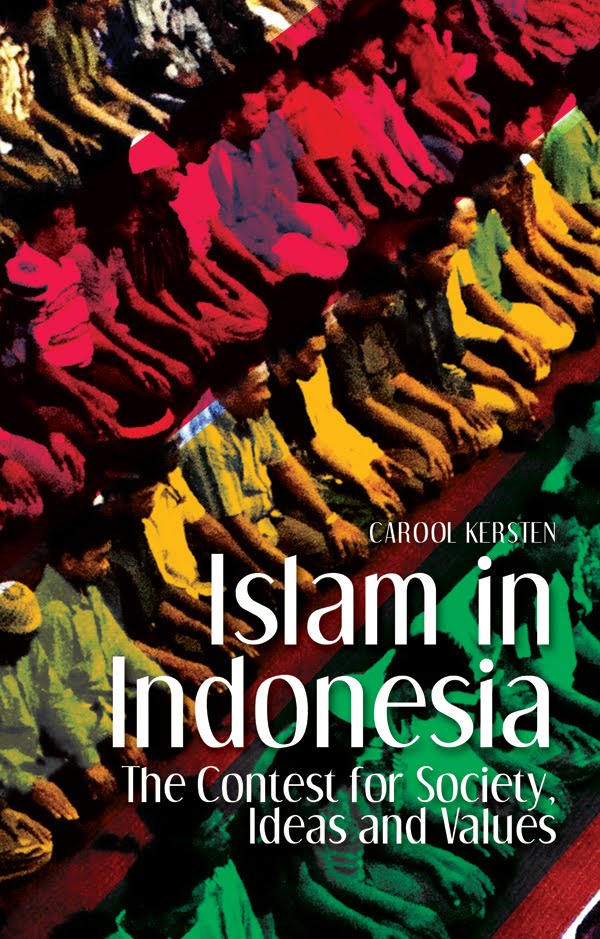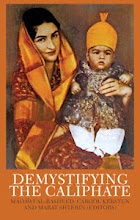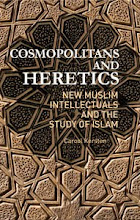The Brunei Gallery at SOAS is host to a collection of artworks by contemporary artists from Saudi Arabia. Although not exactly a country invoking spontaneous associations with pushing the boundaries of cultural conventions through ground-breaking artistic expression, visitors to the Edge of Arabia Exhibition will certainly come away with a different impression of the oil-rich desert kingdom.
Featuring paintings, photographs, mixed media and graphics, sculptures, and installations by seventeen artists, the works shown are perhaps not as provocative as Sarah Maple's, but they certainly shed an unexpectedly light on the cultural atmosphere of a country with a reputation for religious intolerance, which translates also into cultural austerity. Edge of Arabia evinces not only the sea change that has transpired there in the course of the past decade, which -- having spent the better part of the 1990s in Saudi Arabia myself -- I would have deemed impossible and unimaginable at the time. It also affirms the tremendous paradoxes characteristic of societies in the process of reinventing themselves. Because alongside these remarkable signs of innovative artistic expression, other elements inside Saudi Arabia have become even more virulently anti-Western.
This event is not only important because of the exposure it gives to the state of affairs in the Gulf art scene (one of the exhibiting artists lives currently in neighbouring Bahrain); the fact that seven of the participants are women is significant too. And yet, old habits die hard: only one of the female artists, photographer Manal al-Dowayan, is herself recognizably shown in a picture.
But then she is from the Eastern Province, which since the start of oil production in the 1940s has been transformed into a Middle Eastern variant of Texas. Before seeking a 'rich and non-structured education' in photography in Saudi Arabia itself, as well as Dubai, Bahrain, and London, she grew up in Dhahran's ARAMCO compound, a company she currently works for herself. Manal's work is all the more exceptional, because it features images of other women as well -- still considered a bold thing when measured against Saudi standards of propriety (even when the women are veiled). An example is the photograph on the left, entitled 'I am a Petroleum Engineer'
More conventional in tone are fellow photographer and member of the Saudi royal family Reem al-Faisal's reportage-like portfolios from around the world. A granddaughter of the late King Faysal, she was educated in Saudi Arabia and France. When not traveling the world in pursuit of new images, she still divides her time between Jeddah and Paris. Her collections include impressions from Syria, Egypt, Turkey, China, and Saudi Arabia's western region of Hijaz. The exhibits at Edge of Arabia deal primarily with America's 'Nation of Islam'
Shadia and Raja Alem have embarked on a joint project called 'Jinniyah Lar' merging art and literature. Author Raja Alem composed a number of short stories based on medieval Arabic narrations matching the images created by her sister Shadia, which depict 'genies' featuring in this ancient story-telling tradition. Together with Tom Donough, Raja has also written a number of novels. These include Fatma: A Novel Of Arabia
The composition of this ensemble of artists is also geographically balanced, with representatives not only from the country's mega-cities Riyadh and Jeddah, the urban centres of the Eastern Province, or the holy city of Mecca, but also three graphic artists originating from the Southwestern Asir province, on the borders with Yemen. Abdulnasser Gharem, Ahmed Mater Al-Ziad Aseeri, and Mohammed Farea were all contected with the Miftaha Arts Village in Abha, capital of the Asir, although Farea later joined the Riyadh Fine Art Group, to which fellow exhibitors Ali Ruzaiza and Sameer al-Daham belong as well.
Conventional molds are most evidently broken in the work of Abdulnasser Gharem and Ahmed Mater al-Ziad Aseeri. Gharem's work, which has also been on display at the Saatchi Gallery, straddles the media of painting, photography, typographic and installation art. The art of Ahmed Mater al-Ziad Aseeri, who co-curated the exhibition, betrays signs of his other profession. An established GP, he uses X-ray images in his compositions. Bahrain-based Faisal Samra's triptychs in 'Distorted Reality' are combinations of performance and installation. 'In a formal sense they are reminiscent of Francis Bacon’s legendary triptychs. Each performance is unscripted, with no contrived start or finish, and together they form part of Samra’s polemic against what he calls the ‘made-up images’ of advertising and globalised news media. His desire throughout is to present the viewer with images that are rigorously unmediated.'
EDGE OF ARABIA runs until 13 December 2008. An exhibition catalogue by Henry Hemming is for sale at the SOAS bookshop and online







